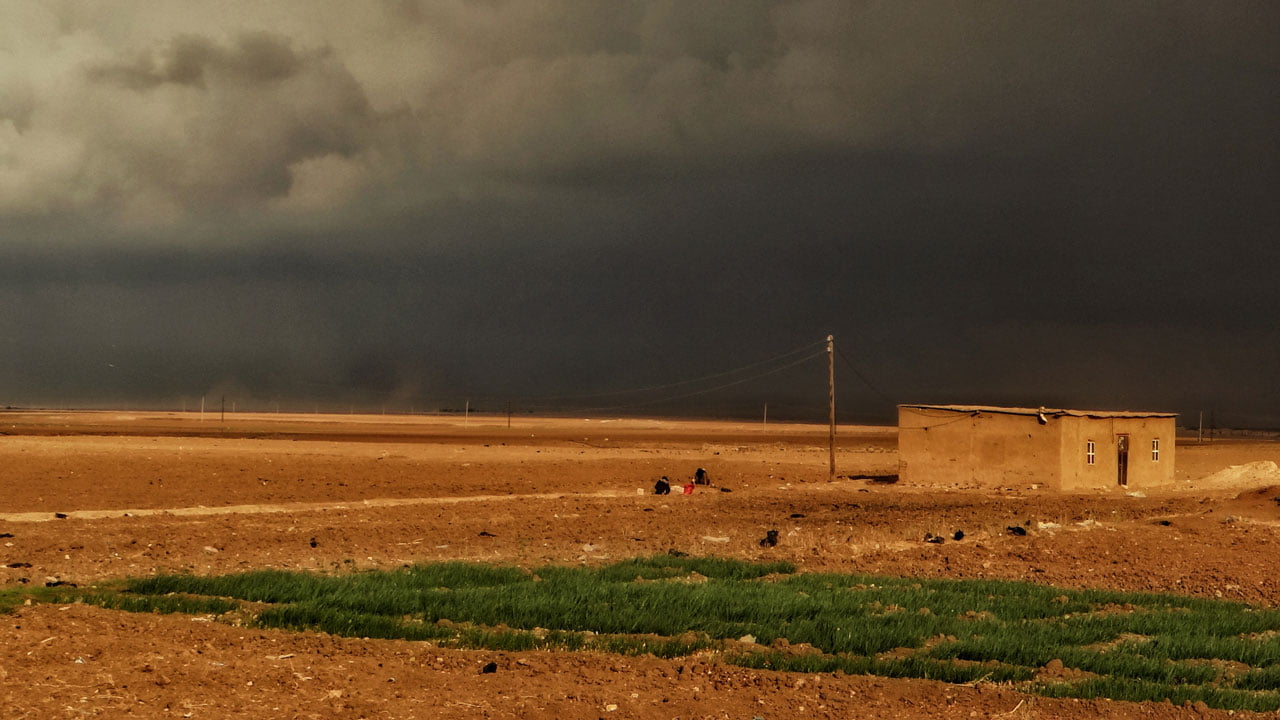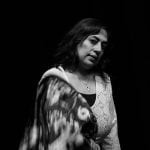Rituals for the winter rains
Al-Hassakah province is located in the north-east of Syria. There were many ethnic groups living together in the village of Al-Hassakah.
I remember, when we were young and winter came, how the people’s faces looked. It was a look of sadness because the winter rains had not come.
My mother would shape a woman from wood and dress her in clothes donated by an old lady from the village. Children gathered around this wooden woman and one child was chosen to carry her. It was believed that only children should be allowed to do this because they are still pure and have not been corrupted by the harshness of life.
We would take the wooden woman and go around the village knocking on every house door while singing a traditional song: Um al Ghaith Beli, our farmer is bald and for years the harvest has failed.
People would donate everything they could, it could be a handful of rice, bulgar, tea, bread or sugar.
At the end of the day, we’d end up with lots of food and we would take the wooden woman, the food and a tent to nearby waste ground. We’d put the statue in the tent and start cooking the food, still singing the song. We were happy because we thought that what we were doing would bring the winter rains and save the village from drought.
I always wondered what the words of the song meant. They talk about the Pasht, the name of the wool robe that the shepherd wore. It’s made by an old wooden machine called a DOK, where the wool is spun and then after spinning is divided into two balls that are placed in a wooden framework called the hammer, similar in shape to an old loom. The garment protects the shepherd both from the cold and the heat. The word ‘bald’ in the song refers to a drought that lasted for two years. During that time our farmers were barely able to plant or harvest wheat in the village. The village depends on the generosity of the sky to give us rain; we all survive on agriculture.
We ate the food that we’d cooked and donated some to the wooden woman. We slept in the tent and waited for the rain. When the sky answered our call we headed back to the village, proud of our achievement: our rituals and prayers had saved our people from potential hardship.
Now I’m 22 years old and I’ve discovered that many other cultures in the Middle East and north Africa practise similar traditions. Despite the large distances between them, they all share a similar purpose: to bring rain from the sky (Um Al Ghaith).
Photo: © Khodor Adrees



